One of the most common pieces of information returned by a history check from Motorcheck is whether or not the vehicle has been stolen and recovered. Needless to say, a car having been stolen would probably be a ‘red flag’ to most prospective buyers — one would assume that a stolen car has been damaged or thrashed in some way. It isn’t necessarily the case; often, cars stolen and recovered can be in entirely good health and perfectly safe and good to use again, but it’s certainly something you should dig into a little deeper if it comes up in a Motorcheck report.
Car theft prevention
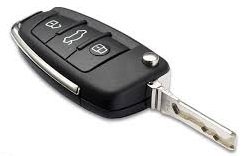 Clearly, it’s not something any of us would want to happen to ourselves, but how does one keep one’s car safe from the light-fingered fraternity? There is a perception that, with modern immobiliser and electronic key technology, that newer cars are virtually immune from theft, but that’s simply not the case.
Clearly, it’s not something any of us would want to happen to ourselves, but how does one keep one’s car safe from the light-fingered fraternity? There is a perception that, with modern immobiliser and electronic key technology, that newer cars are virtually immune from theft, but that’s simply not the case.
Irish car theft numbers
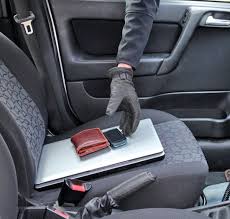 In Ireland, there are roughly 10,000 car thefts, or related offences, recorded every year, according to the Garda Siochana. Now, not all of those incidents involve the car being stolen — many are thefts of items from cars, and there’s little enough you can do to stop someone who’s determined to get inside your vehicle to snatch something. Glass is glass, after all and the only protection here is to not leave anything valuable or desirable on show.
In Ireland, there are roughly 10,000 car thefts, or related offences, recorded every year, according to the Garda Siochana. Now, not all of those incidents involve the car being stolen — many are thefts of items from cars, and there’s little enough you can do to stop someone who’s determined to get inside your vehicle to snatch something. Glass is glass, after all and the only protection here is to not leave anything valuable or desirable on show.
Other offences are rather less destructive, and rather more sneaky. There has been a spate, for instance, of crooks waiting at filling stations, and filching things out of the car while you’re attention is focused on the fuel pump. It’s perhaps not the most serious of crimes, but it’s certainly something to remember next time you need a tankful.
Electronic car security
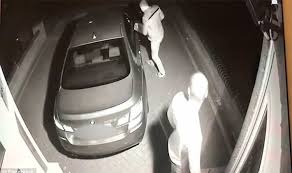 Rather more serious is the rise in thieves using countermeasures to get around the latest levels of electronic security. One of the big new weak spots is the use of relay transmitters to amplify the signal from a keyless entry key to the car sitting on your driveway. Using a signal booster, the crooks can convince the car’s electronics that the key is next to the car, rather than sitting in the pocket of your trousers inside the house, and can open the door and drive away — no need to break into the house to get they keys anymore. One such incident was recorded on CCTV in Dublin last year, when thieves used a relay to fool a high-end BMW that they had the keys. It’s a classic example of crooks using our desire for greater convenience against us.
Rather more serious is the rise in thieves using countermeasures to get around the latest levels of electronic security. One of the big new weak spots is the use of relay transmitters to amplify the signal from a keyless entry key to the car sitting on your driveway. Using a signal booster, the crooks can convince the car’s electronics that the key is next to the car, rather than sitting in the pocket of your trousers inside the house, and can open the door and drive away — no need to break into the house to get they keys anymore. One such incident was recorded on CCTV in Dublin last year, when thieves used a relay to fool a high-end BMW that they had the keys. It’s a classic example of crooks using our desire for greater convenience against us.
How can electronic car theft be avoided?
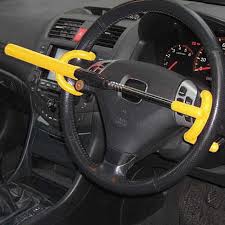 How can we beat them at their game? Well, don’t spec your car with keyless ignition might be a good start, or take the battery out of the key fob when you’re going to bed at night. Or, as the Gardai are increasingly suggesting that car owners do, return to the old days of steering wheel locks and gate posts. If you wanted to be really high tech about it, you could also keep your key in a box that incorporates a Faraday Cage, a simple metal surround, that blocks and inhibits radio signals.
How can we beat them at their game? Well, don’t spec your car with keyless ignition might be a good start, or take the battery out of the key fob when you’re going to bed at night. Or, as the Gardai are increasingly suggesting that car owners do, return to the old days of steering wheel locks and gate posts. If you wanted to be really high tech about it, you could also keep your key in a box that incorporates a Faraday Cage, a simple metal surround, that blocks and inhibits radio signals.
The other old tricks and suggestions still work well — park, if you can, in a well-lit spot. Park nose-in to some sort of obstacle with the wheels turned towards the kerb. If you have a garage, use it. Never leave the car with the engine running. It all sounds like kindergarten stuff, but it all makes a difference. All you really have to do is make your car a little more inconvenient to nick, and the thieves will move on to the next one.
What about the vehicle you’ve chosen, though?
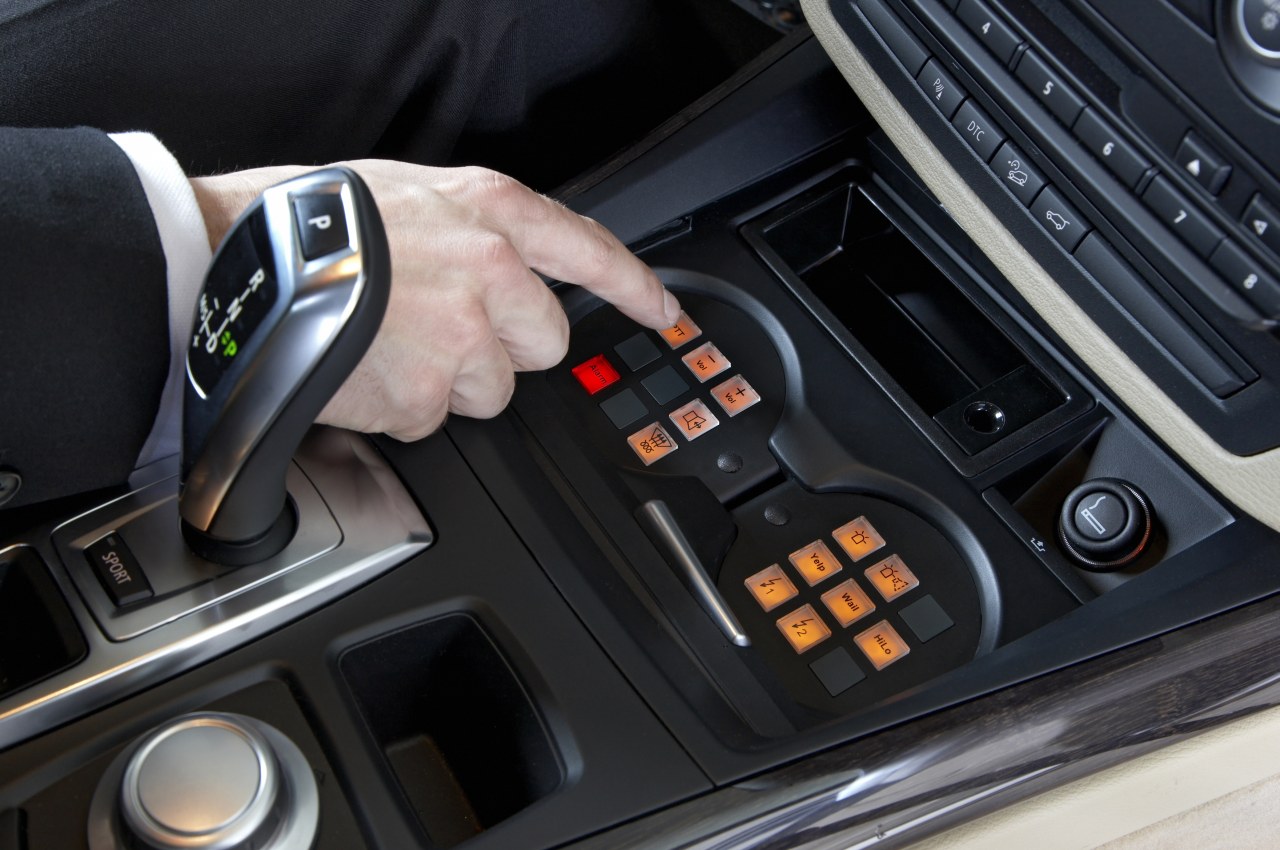 Certainly, there are some models that attract rather more attention from the criminal fraternity than others, so if you’ve got one of these cars it might be worth taking some extra precautions.
Certainly, there are some models that attract rather more attention from the criminal fraternity than others, so if you’ve got one of these cars it might be worth taking some extra precautions.
Here in Ireland, it’s German cars that generally top the charts as targets, so if you’ve got a VW Passat, VW Golf, or Audi A4, it’s best to be extra vigilant. Other ‘popular’ cars among thieves are the Skoda Octavia, Ford Focus, Ford Mondeo, BMW 5 Series, and Toyota Avensis. There’s also a strong demand for Japanese car parts amongst the turning community, so if you’ve got a Honda Civic, Toyota Corolla or Starlet, or a Subaru Impreza, be careful.
If you’re buying a car in from the UK, it’s the prestige marques and models that are most at risk. According to the latest UK Office of National Statistics, the most targeted cars for theft are the BMW X5, M3, 3 Series, and 5 Series; the Range Rover, and Range Rover Sport; the Mercedes C-Class, and E-Class; and the Land Rover Defender. That last one is something of an oddity, but is down to the fact that, when Land Rover finally ceased Defender production two years ago, second hand values of those tough old workhorses shot up, making them that much more tempting to crooks. It’s helpful to those crooks that much of the Defender’s locking and ignition technology dates back to the seventies, making it easier to bypass than more modern machinery.
Car crime is common nowadays
So, as the man at the end of Crimewatch always said, please don’t have nightmares — car crime is common, but it’s usually just a case of stolen goods, rather than any violent crime, and if you follow some of the hints and tips here, you’ll be doing a lot to keep it at arm’s length. And make sure you get the history of any car you’re looking at buying, especially if you’re looking at importing a luxury model from the UK. Mind how you go, now.